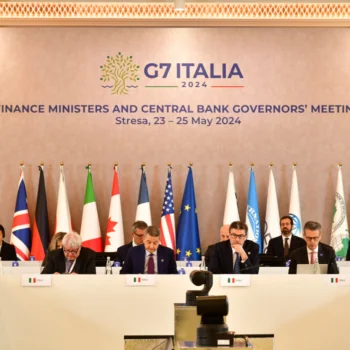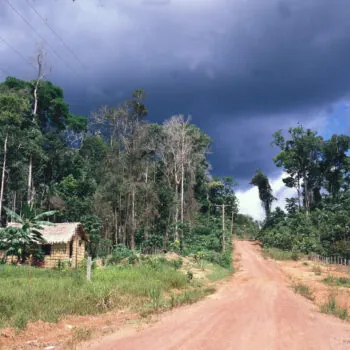The climate and development finance agenda ties together several of Labour’s biggest foreign policy priorities: combatting the climate crisis, rebuilding ties with developing countries and restoring the UK’s international reputation. It will take bold, rapid action to convince other countries that the UK is serious again. The new government must set out a clear vision for action ahead of key talks this Autumn.
There are three main areas where the UK can play an increased role:
1. Strengthening the UK’s direct climate finance delivery tools
The Labour government has promised to fulfil the UK’s pre-existing five-year commitment to deliver £11.6bn of international climate finance (ICF) through to 2025/26. Because the previous government left so much of this spending to the last years of the commitment period, a modest annual increase would allow the UK to double ICF to £23.2bn over the subsequent five years. This increase would respond to the rising global demand for climate finance while staying within international norms for the share of aid allocated to climate.
Announcing this commitment at UNGA would put the UK in a position to encourage other donors to step up ahead of next year’s NDC submission deadline.
To capitalise on this uplift, the UK should strengthen its climate finance delivery toolkit. British International Investments, the UK’s development finance institution, has a relatively narrow mandate which limits its ability to respond to global challenges. Creating a mission-oriented development bank with a focus on sustainable infrastructure – like equivalents in France and Germany – would drastically enhance the UK’s footprint and visibility while potentially adding billions in climate investment beyond the ICF budget.
In addition, the UK should also strengthen its ability to deliver long-term, strategic capacity building by establishing a new Climate Cooperation and Partnerships Agency within FCDO. This would also help the government maximise synergies between ICF and the UK’s wider diplomacy.
2. Driving reforms at the international financial institutions
Ramping up MDB lending is the most cost-effective way to mobilise public finance at scale. According to the G20’s Independent Expert Group, Multilateral Development Banks will need to triple their lending by 2030 to meet the climate investment challenge in developing countries.
Ahead of the World Bank/IMF Annual Meetings in October, the UK should put pressure on the MDBs to fully implement the recommendations of the G20 Capital Adequacy Framework review. In particular, the UK should work with other shareholders to broker a dialogue between MDBs and Credit Rating Agencies to better reflect callable capital in credit ratings. This could boost MDB lending by 10-20%.
Even with these reforms, MDBs will need new capital injections. The UK should commit at least £2bn to the IDA21 replenishment round this year. This would partially reverse the UK’s previous cuts to IDA, the world’s largest provider of adaptation finance.
Looking ahead, the UK should work with other G20 countries to rally support for a broader capital increase across the MDB system, starting with the International Bank for Reconstruction and Development (IBRD).
The UK could also support the MDB system with Special Drawing Rights (SDRs), IMF reserve assets. The UK has rechannelled only 20% of its SDR allocation, half the level of other G7 economies like France and Japan. The new government should immediately increase the UK’s contribution, as well as committing to rechannel SDRs through the MDBs, which would allow the SDRs to be leveraged up to four times over.
3. Building bridges through international fora
The big agenda item at COP this year is climate finance; a new global goal will be negotiated to replace the $100bn climate finance target. Months out from the deadline, a global leadership vacuum has emerged as developed and developing countries continue to put forward opposing views of the goal. The UK is well placed to step up, as Gordon Brown did in 2009 by proposing the $100bn goal, to ensure this divergence does not de-rail the global climate process.
At the G20, the UK should take the lead on key topics which will enable other reforms to land: prudential reform and debt. The UK should encourage the G20 to task an expert group to feed recommendations in to the Financial Stability Board. This group should examine outstanding gaps the global prudential framework’s treatment of climate risk, especially in relation to emerging and developing economies. The UK should also accelerate efforts among G20 leaders to take practical steps to resolve debt distress, a key barrier to economic transition and resilience in climate-vulnerable countries.
Moving forward, the UK could offer to host a follow-up to the Paris Summit for a New Global Financing Pact to return to the centre stage of climate diplomacy.



